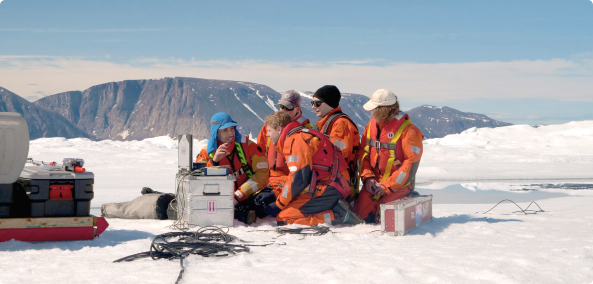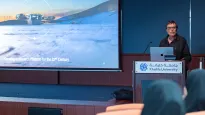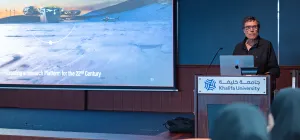A New Antarctic Season Begins for Princess Elisabeth Antarctica

As the ill-fated year 2020 rolls to an end, the new Antarctic Season begins for the Princess Elisabeth Antarctica Research Station.
It is a testament to the dedication of the crew and the research teams, that they are not daunted by what they are called upon to do. Despite the difficult months that we, collectively as inhabitants of Planet Earth, have lived through following the announcement of the pandemic and with the confinements in Europe and throughout the World, there is a certain resolve and determination as Alain Hubert and his team contemplate the coming season.
The first team is currently in quarantine in Cape Town, following the DROMLAN (Dronning Maud Land Air Network) COVID 19 Sanitary Protocol, having arrived under special permit issued by the South African Department of Home Affairs. Cape Town is currently in low-level lockdown (Level 1) and life has returned to something approaching a semblance of normal……but with masks. However, the restrictions on foreign arrivals are still in place, and it took the coordinated efforts of the Belgian Embassy and the South African National Antarctic Program, in support of the applications of the team, to finally help obtain the laisser-passers needed to board flights.
The quarantine requires that all the participants should be in self-isolation for a period of two weeks after arrival in Cape Town. Two PCR tests are conducted after arrival, one at Day 5 and one at Day 12. The team is accompanied by the station doctor, Dr Martin Leitl, who will be responsible for the first rotation, and who is carrying out the tests. Dr Jacques Richon will cover the second rotation. The Belgian Antarctic Research Expedition has obtained its own PCR testing equipment, which has the capability to test either for the SARS COV-2 virus or a range of other viruses including mutations of the COVID-19 virus causing the pandemic. This has allowed the team to put in place a pro-active strategy for testing giving rapid results and permitting certain flexibility in the management of the self-isolation.
The team is currently staying in the foothills of Table Mountain National Park and has been given the liberty to exercise outdoors in the fresh air by taking walks around the national park. This has contributed to team morale while maintaining the general physical condition of the Expedition.
The Cape Town Operations Team is managing the cargo preparations, procurement and quarantine support for the station crew as they have to cook for themselves, and are not allowed to have contact with others.
The Ilyushin 76 which will take the team to the Antarctic and which will assure a medevac standby during the whole season is also in Cape Town while the flight crew carries out the same quarantine procedures, under the management of the Antarctic Logistics Company International (ALCI). The DC3 ski-equipped planes which will assure the final leg are also in quarantine in Punta Arenas, from where they will make their way to Novo Air Base when the weather window opens in the coming days.
The amount of preparation required for this year’s Expedition is significantly more than for a “normal” season, and every effort will be made to assure that the virus does not reach the Antarctic.
Once at the station, the crew will carry out essential work to protect the infrastructure of the station, while the researchers will carry out maintenance on the monitoring instruments and will install some new devices.
The enforced quarantine hase provided the time to prepare for the season using Zoom and Skype meetings with colleagues in Belgium to prepare strategies and work on new aspects such as computer modelling of the Air Handling Units. The time of forced reflection has created a fresh dynamic as creativity has blossomed. More on this soon.






















